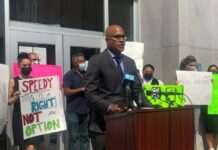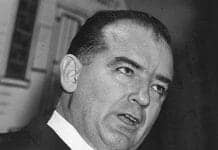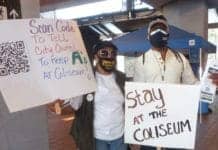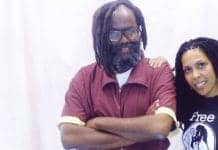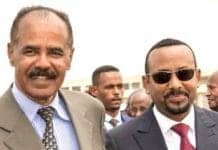by Ann Garrison
KPFA Weekend News for May 30, 2011

Law professor and international criminal defense attorney Peter Erlinder and Uganda People’s Congress activist and publicist George Okello discuss the selective African justice of the International Criminal Court (ICC), in response to the court’s decision not to leave the prosecution of Kenyans to Kenyan institutions.
Transcript
KPFA Weekend News Host Anthony Fest: Kenya failed today to halt an International Criminal Court prosecution of six government and media figures for allegedly organizing the country’s post-election ethnic violence, which left at least 1,300 dead and drove hundreds of thousands more from their homes. Kenya’s government objected to the ICC proceedings, arguing that its new constitution and other reforms had opened the way for it to conduct its own prosecution with its own institutions.

KPFA’s Ann Garrison spoke with William Mitchell Law School professor and international criminal defense attorney Peter Erlinder and with Ugandan opposition leader Okello Lucima about African nations’ growing resistance to the court, which has never tried any leaders who were not African.
KPFA/Ann Garrison: Professor Peter Erlinder, could you explain the African resistance to the International Criminal Court that Kenya appears to have joined?
Peter Erlinder: Just a little over a year ago all of the presidents of the African Union states voted not to cooperate with the International Criminal Court because it’s become a court that prosecutes only Africans and, moreover, it prosecutes only Africans that are not allied with the major powers on the Security Council. The result of that is that, increasingly, the leaders of African countries, including Kenya, have come to the conclusion that the ICC, at least as far as Africans are concerned, is not a level playing field.

KPFA: Okello Lucima, longtime activist and publicist for the Uganda People’s Congress, said that he likes the idea of the International Criminal Court, but not its selective prosecutions:
Okello Lucima: I support the International Criminal Court in the principles behind it, but I think justice would require that similar cases receive similar treatment. Crimes that were committed in Northern Uganda and the Congo in no way can compare to what has happened in Zimbabwe over the same period. The Northern Uganda catastrophe was not even second to Darfur.

KPFA: Ugandan President Yoweri Museveni has been a close U.S. ally since taking office in 1986. He has been a willing collaborator in the IMF and World Bank’s economic structural adjustment regimes and he sent soldiers to Iraq as part of George W. Bush’s coalition in 2003. Thousands of Ugandan soldiers have taken the place of U.S. troops since the troop withdrawal began.
For Pacifica, KPFA and AfrobeatRadio, I’m Ann Garrison.
San Francisco writer Ann Garrison writes for the San Francisco Bay View, Global Research, Colored Opinions, Black Star News, the Newsline EA (East Africa) and her own blog, Ann Garrison, and produces for AfrobeatRadio on WBAI-NYC, Weekend News on KPFA and her own YouTube Channel, AnnieGetYourGang. She can be reached at ann@afrobeatradio.com.

 Store
Store



